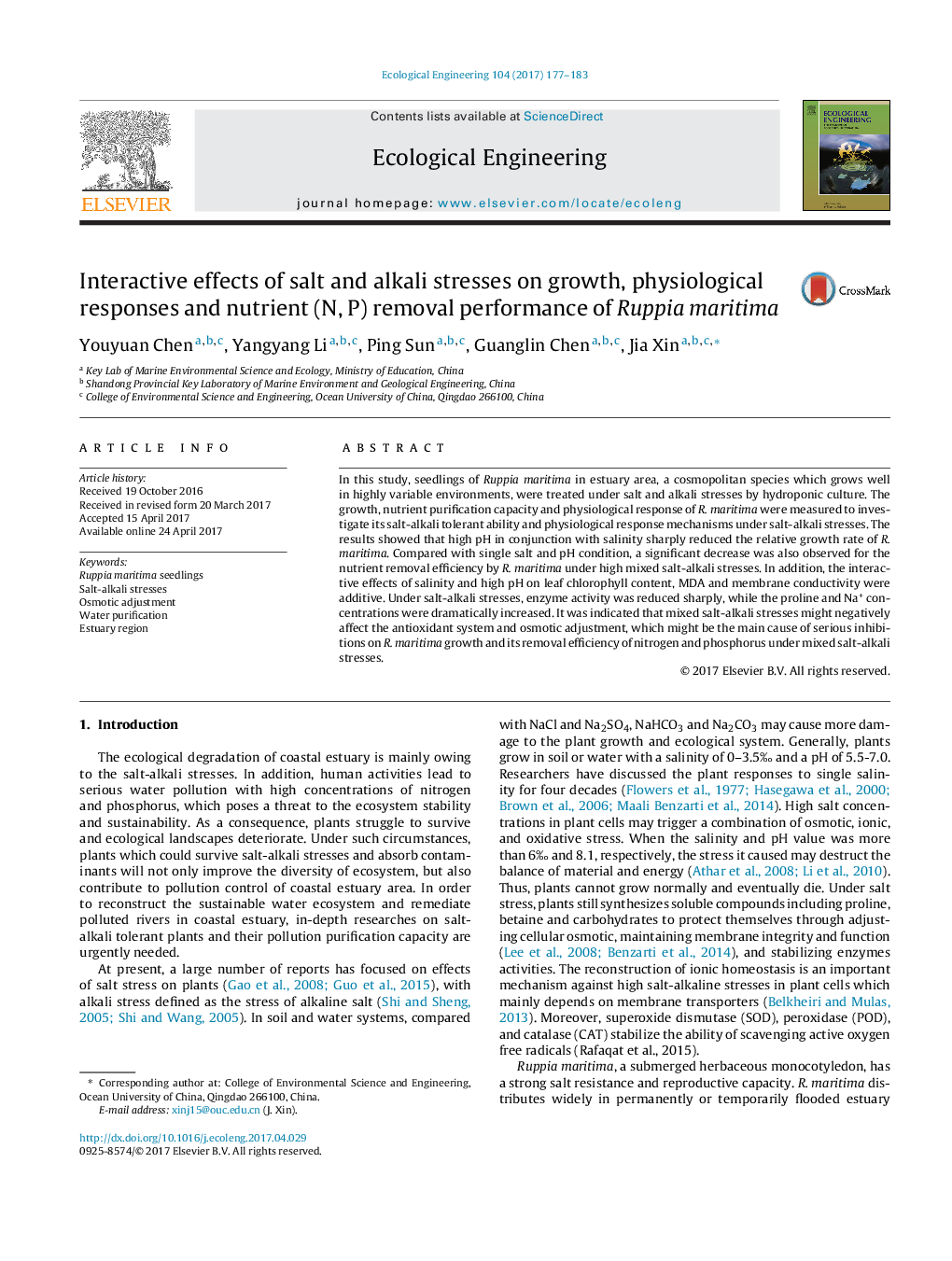| Article ID | Journal | Published Year | Pages | File Type |
|---|---|---|---|---|
| 5743956 | Ecological Engineering | 2017 | 7 Pages |
â¢Salt-alkali tolerant ability and mechanisms of R. maritima were investigated.â¢High pH in conjunction with salinity sharply reduced RGR of R. maritima.â¢Nutrient removal efficiency declined under combined salt-alkali stresses.â¢Combined stresses impacted chlorophyll, MDA and membrane conductivity additively.â¢Spoiled antioxidant system and osmotic adjustment caused vulnerability to stresses.
In this study, seedlings of Ruppia maritima in estuary area, a cosmopolitan species which grows well in highly variable environments, were treated under salt and alkali stresses by hydroponic culture. The growth, nutrient purification capacity and physiological response of R. maritima were measured to investigate its salt-alkali tolerant ability and physiological response mechanisms under salt-alkali stresses. The results showed that high pH in conjunction with salinity sharply reduced the relative growth rate of R. maritima. Compared with single salt and pH condition, a significant decrease was also observed for the nutrient removal efficiency by R. maritima under high mixed salt-alkali stresses. In addition, the interactive effects of salinity and high pH on leaf chlorophyll content, MDA and membrane conductivity were additive. Under salt-alkali stresses, enzyme activity was reduced sharply, while the proline and Na+ concentrations were dramatically increased. It was indicated that mixed salt-alkali stresses might negatively affect the antioxidant system and osmotic adjustment, which might be the main cause of serious inhibitions on R. maritima growth and its removal efficiency of nitrogen and phosphorus under mixed salt-alkali stresses.
Graphical abstractDownload high-res image (126KB)Download full-size image
